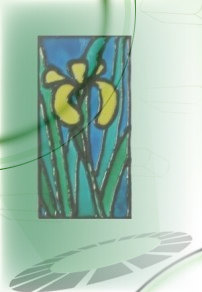


 |
Sometimes it seems
as if the answer must be circles. It’s
comfortable and it fits, mostly, except when it comes to Man.
There are, of course, seeming anomalies. It is difficult not to agree with Rilke and his image of the animal looking out into infinity: it has no sense of its own mortality, so everything is what it is now and going on into the future – there’s the line progressing, going forward. No circle there. But wait. It doesn’t need consciousness for the circle to be there, because it’s there in the cycle of life and death, being born and growing and being hunted and nourishing (its own or the hunter) and dying. And its own go on, the cycle endlessly repeating; or there’s a shift as habitat evolves and then there’s more or less or somewhere else, or subsumed within a larger cycle, but still the ring encompasses. So does the real anomaly start with consciousness? This anomaly of creation – Man – in which the created stops being contained within the circle? That would mean no consciousness in animals Can that be true? Elephants show grief at loss – a sense too of knowing when their end is coming, though that could be instinctive – , but a mourning at the death of one of theirs? Chimpanzees too. That pain of a loss can only be the outcome of a sense of something changed, which presupposes a sense of how things are and were, a consciousness. Consciousness. Awareness of how things are. That can’t be all. If it were, then elephants and probably whales and dolphins would have broken out of nature’s cycle. Alright, no hands, no thumbs, no means to grasp. But that doesn’t apply to chimpanzees. No, there has to be something else. Awareness of how things are. But also awareness of how things could be, if… And a how-things-could-be, which is about more than physical needs, more than the invention of simple tools. It’s a conceptual abstraction which goes beyond the potential of immediate gain. Temporal, and spatial too. It can have others both as means and objects – not always Maslow’s hierarchy. Could it be, we do because we can? For fun? That we do things and make things and feel the frisson of wonder and excitement at the new and different – the start of adventure, just for its own sake? Not for society, friends, family. (Even the telling of an adventure is self-centred.) So empathy only came later. And without empathy, morality is always playing catch-up. And if the breaking out was just a game? But the rules were broken and the circle compromised, so no going back, no mending? Only a vain attempt at containing, to find some kind of moral code to cover the betrayal? Even now the fun can’t be resisted – we’ll find a way to extend our life, or come back later, or colonise another solar rock – anything to prove that we’re the exception to nature’s over-riding pattern, the circle. Until an arc of more massive dimension closes the greater circle we did not see.
|
|
|
|
|
|
|||||||||||||||||||||||||||
|
|
|
||||||||||||||||||||||||||
|
|
|||||||||||||||||||||||||||
| Site Map |